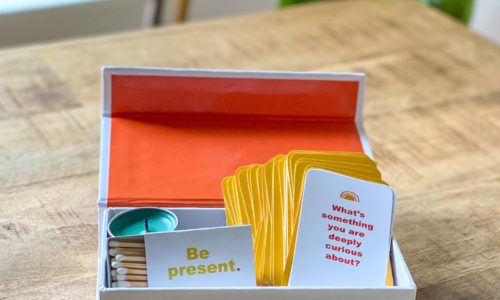Lesson #3: Level up your storytelling.
I overheard Charlie say to Sam, “Don’t do what mom did! Remember that story? It didn’t turn out very well!”
We all use storytelling in our parenting. We know the power of a good tale and how hungry our children are to learn details about our childhoods and daily lives. Our stories entertain, teach, relax, excite, and forewarn.
But my experience at Acton Academy has changed my strategy of storytelling.
I now know all children need a repository of particular stories – hero’s stories. And as a parent, I aim to hunt for them and weave them as I go through daily life.
An esteemed friend described the alternative well: “Without hero’s stories children grow up into young adults who believe they are fragile and are not to blame for their own misery.”
Pre-Acton, I released this level of storytelling to the great filmmakers and writers. But I cannot risk missing the opportunity. Hero’s stories give my children an inner map for traversing their journeys with confidence. They teach that life isn’t fair, feelings get hurt, ordeals arise but there are mentors, guides, true friends to help along the way. And, most importantly, these stories transmit the truth that my children – all children – have unique inner gifts to discover and use joyfully to help others in the world. I don’t need to be the most brilliant storyteller to share how the checkout worker at the grocery store swiftly covered for the woman who didn’t have enough money to buy her groceries.
Here are two main ideas to help you level up your own storytelling.
- What’s a hero?
At Acton we describe heroes as people who don’t always win but who get back up when they fall. Heroes aren’t afraid to be wrong. Heroes look for mentors and guides. They work to solve problems. They are honest even when it’s hard and learn how to apologize with humility. Heroes accept responsibility – actually crave responsibility.
Victims, in contrast, blame, complain and shirk responsibility – even responsibility for their own feelings. They look for the easy way out or quit when things get hard. Victims have excuses when things don’t go well and have a hard time apologizing because “it’s not really my fault.”
We all act like heroes and like victims. Being aware of these mindsets helps us call out one or the other and shift attitudes and behaviors when needed. It’s helpful to use a lot of forgiveness and grace with yourself and others in the process.
- What’s the framework for a hero’s story?
I like this simple description from “A Practical Guide to The Hero With a Thousand Faces by Joseph Campbell” and adapted by Chris Vogler:
“A hero is introduced in his ordinary world, where he receives the call to adventure. He is reluctant at first but is encouraged by the wise old man or woman to cross the first threshold, where he encounters tests and helpers. He reaches the innermost cave, where he endures the supreme ordeal. He seizes the sword or the treasure and is pursued on the road back to his world. He is resurrected and transformed by his experience. He returns to his ordinary world with a treasure, boon, or elixir to benefit his world.”
(Don’t forget the “cave” is the thing you fear doing the most. You’ve got to go there to get your treasure. I love that angle when I need to encourage my children to face something hard.)
Happy treasure hunting and storytelling!


